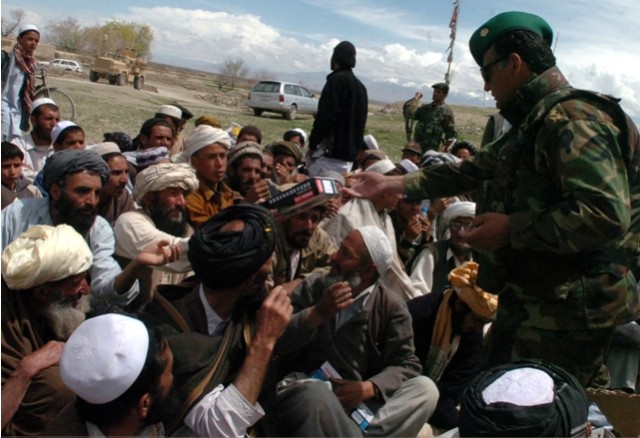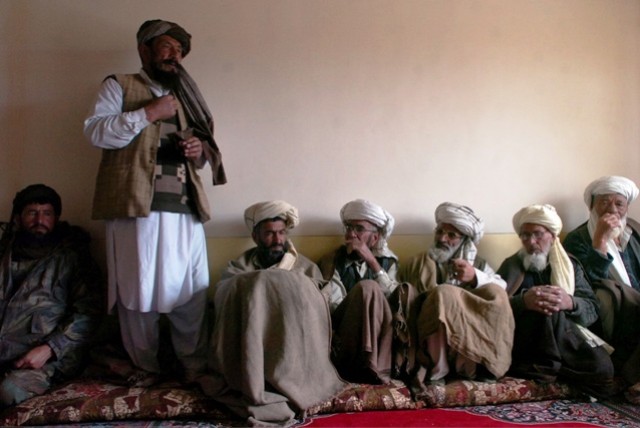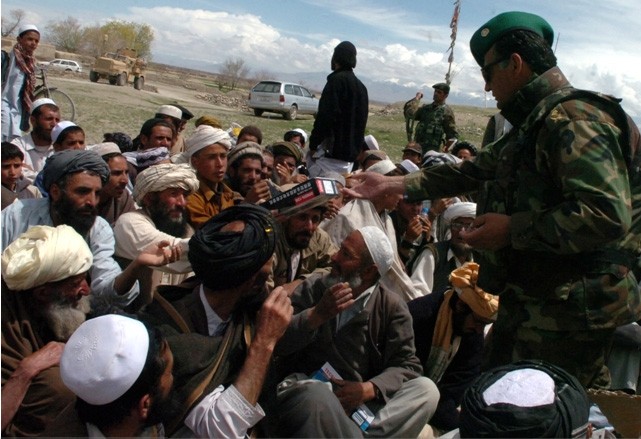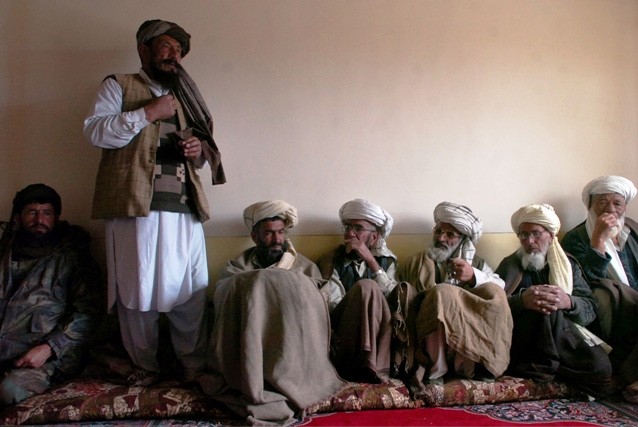BAGRAM AIRFIELD, Afghanistan (April 21, 2009) - Afghan National Army and U.S. servicemembers conducted two local shuras in the Zormat District, Paktya province, April 13 - 15, to discuss the recent establishment of Combat Outpost Kalagu and to address concerns of the village elders.
The shuras, a gathering of local elders and villagers, were hosted by the commanders of the 1st Company, 1st Kandak, 203rd Corps of the Afghanistan National Army, along with Soldiers from 1st Squadron, 40th Cavalry Regiment, 4th Brigade Combat Team, 25th Infantry Division.
"What we are trying to do is to get to the villages and population centers immediately surrounding this COP to let them know what we are doing here, let them know that security is coming, find out what their issues are, and listen to what they've got to say," said Lt. Col. Robert Campbell, 1st Sqn., 40th Cav. Regt. commander.
The COP was established by the 1st Co., 1st Kandak and 1st Sqn., 40th Cav. Regt., bringing force assets to the area, which carried the potential to alarm the locals.
"We came in with an air assault assets, helicopters, and trucks and we want to get to the population quickly, so we can connect with the people right away," said Campbell.
A positive and developing relationship with village elders in the area is essential to the success of the ANA. Despite some original hesitation, the commanders said they feel their efforts will assist in bringing peace.
At first, they were nervous because the enemy has been in and out of the area. Anytime there have been talks with international forces or Afghan National Security Forces, there has been a threat of retaliation from the Taliban, said Campbell.
Several elders at the Shuras expressed concern regarding this issue, among others, and spent several hours relaying those concerns to the commanders, who listened carefully and offered remedies for each issue.
"I think we gained their trust very quickly and I give that credit to the 1st Co., 1st Kandak commander, because he knows how to connect with the people. They realized that we weren't there to hurt them or search them, we were there just to communicate with them and show them that we care, and we want to make a better life for them," said Campbell.
Lt. Col. Attauallah, the commander of the 1st Co., 1st Kandak, assured the elders he would maintain an open line of communication with them, and respect their culture, traditions, and desires for their community. He promised not only an unending fight to maintain security, but also a determination to build up Kalagu through various projects.
"We are working with the forces to start projects of schools, clinics, paving roads, and wells," he said to the elders. "We are here to bring peace and stability, to drive out the enemy, and are thinking of good projects and a peaceful area of Afghanistan."




Social Sharing